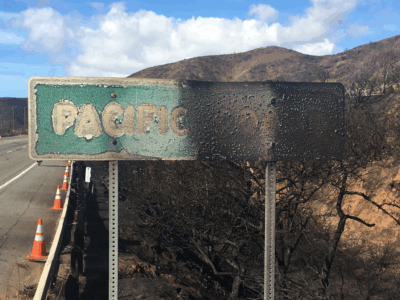The Looming Liability of Orphaned Oil Wells
Abandoned wells pose a rising risk to the state as the industry struggles
Recent reports are highlighting a looming environmental threat from the ongoing struggles of the oil and gas industry, which derive from a combination of the demand impacts of the covid-19 pandemic and long-running price wars and financing challenges. As more operators face bankruptcy, states including California may face a boom in “orphaned wells”: oil and gas wells that are abandoned by the operator without sufficient funds reserved to pay for complete environmental remediation. These wells can pose serious health and water quality risks to nearby communities, and when operators leave them behind they can become the responsibility of state and local governments.
There may be more than 3 million abandoned wells in the country right now, with over 50,000 in California. A recent state report identified over 5,500 of these in California that may already have no financially viable operator or cleanup funds—orphaned wells—and projected up to $500 million in net liability for these wells, some or all of which could become the state’s responsibility. Another 69,000 already-abandoned, idle, or economically marginal wells could eventually fall into this category, with potential liabilities in the billions of dollars.
As Ethan Elkind and I note in our new report, Legal Grounds, the state legislature could start to address this massive looming environmental liability by instituting the state’s first-ever severance tax on fossil fuel production. (We will discuss the report’s key findings in a May 12 webinar featuring an expert panel.) California, unlike every other major oil-producing state in the country, does not tax oil and gas production (though it does impose a minimal fee to fund state regulatory operations), and the bonds it requires operators to maintain are typically insufficient to match the cost of plugging a well.
By joining the likes of Colorado and Texas, California legislators could raise hundreds of millions of dollars per year to fund the cleanup of orphaned wells that private operators have abandoned. The state could also use this revenue to ramp up air and water quality enforcement, strengthen climate-related reviews of new wells, and support workforce transitions in vulnerable communities that neighbor these operations. As an alternative to new legislation, the Geologic Energy Management Division could increase its regulatory fee to fund the existing idle well cleanup program and other oil and gas-related programs.
The ripples unfolding throughout the fossil fuel industry could bring even more environmental and financial hardship to California through large-scale orphaning of wells. California legislators could begin to address this risk by taxing oil and gas production in line with the rest of the country.







Reader Comments